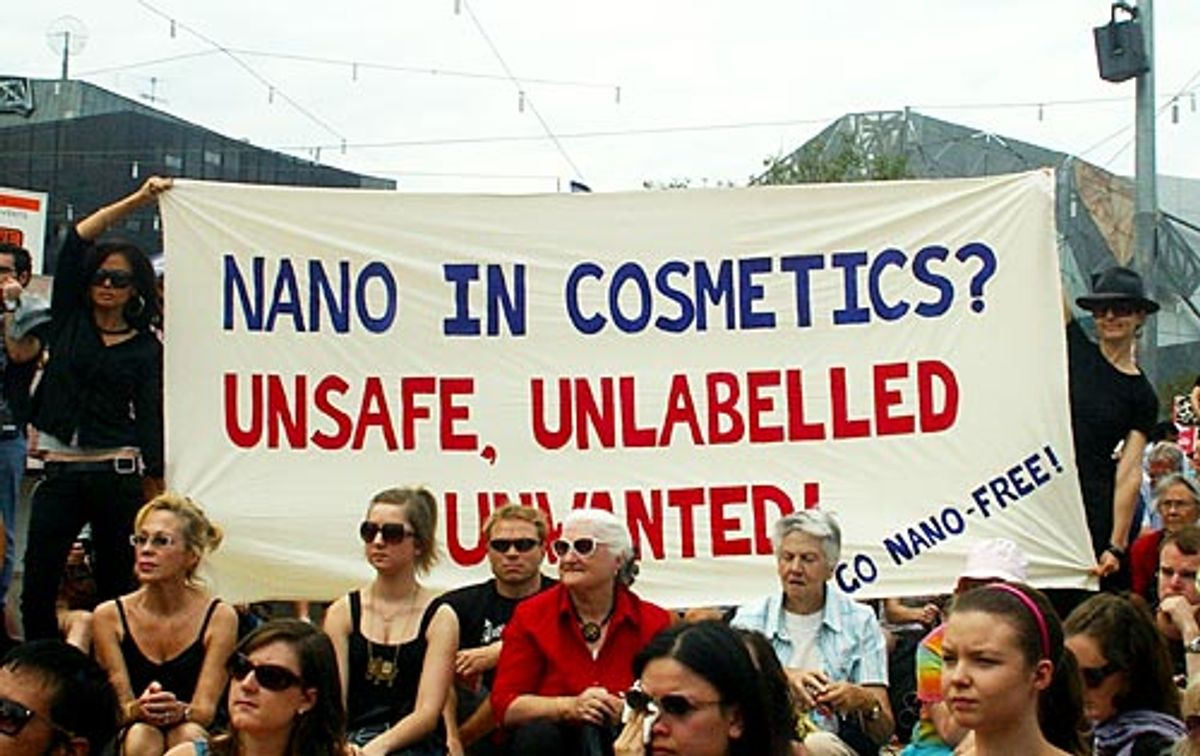Last week, I commented upon Dr. Andrew Maynard’s questioning of the Friends of the Earth’s (FoE) call for a ban on nanoparticles in sunscreens.
Dr. Maynard, who has a reputation for someone who challenges the safety of products containing nanoparticles, turned the tables somewhat and challenged the FoE to answer a fairly specific question: What is your worst case estimate of the human health risk from titanium dioxide and/or zinc oxide nanoparticles in sunscreens?
Not to be outdone in a PR spectacle, which is their bailiwick after all, the FoE has responded. And the answers are really none too surprising, they follow along the lines of “You know we don’t know that, so why are you asking and why aren’t you asking the manufacturers instead.”
The prose is so plaintive you can almost hear the high-pitched whining. But as the FoE should know Maynard has been challenging manufacturers about the safety of their products for years now, but he has decided to do it responsibly.
The FoE on the other hand doesn’t seem to feel that constraint. Instead on occasion they have behaved like a petulant child by boycotting public-engagement meetings intended to get the input of the ordinary citizen. The offered reason for the boycott being that the meetings were PR spectacles (again an area that the FoE knows very well) with foregone conclusions. It couldn’t have possibly been that engaging the public in a discussion about the safety and risks of nanoparticles may have taken away their ability to drive the direction of the discussion?
I was so pleased to read the one comment posted thus far on the 20/20 blog post from the always sensible Hilary Sutcliffe.
Here is the final paragraph from her comment:Andrew regularly raises some of the very issues that you mention in your list in different fora and in his blog. But in this regard I think it is quite appropriate that your work should be the focus of just as much scrutiny as he puts everyone else’s and so welcomed his expert view on your paper. NGOs make an important contribution to this and other debates, but there has been a tendency in recent years for data to be cherry-picked and skewed to make a point, which for me undermines the credibility of a much needed countervailing voice in this discussion. NGOs like yourselves play an essential role in furthering debate in this area, but your views and agenda also deserve to be debated and dissected as any other interest group’s does, whether it be business, government, consumer groups, scientists, social scientists or any other. Only then is society and consumers served. Sadly what has happened is that nobody dare challenge NGOs and they are not able to contribute as fully as they might, so we often don’t get the quality of information and debate which is really needed.
Dexter Johnson is a contributing editor at IEEE Spectrum, with a focus on nanotechnology.




